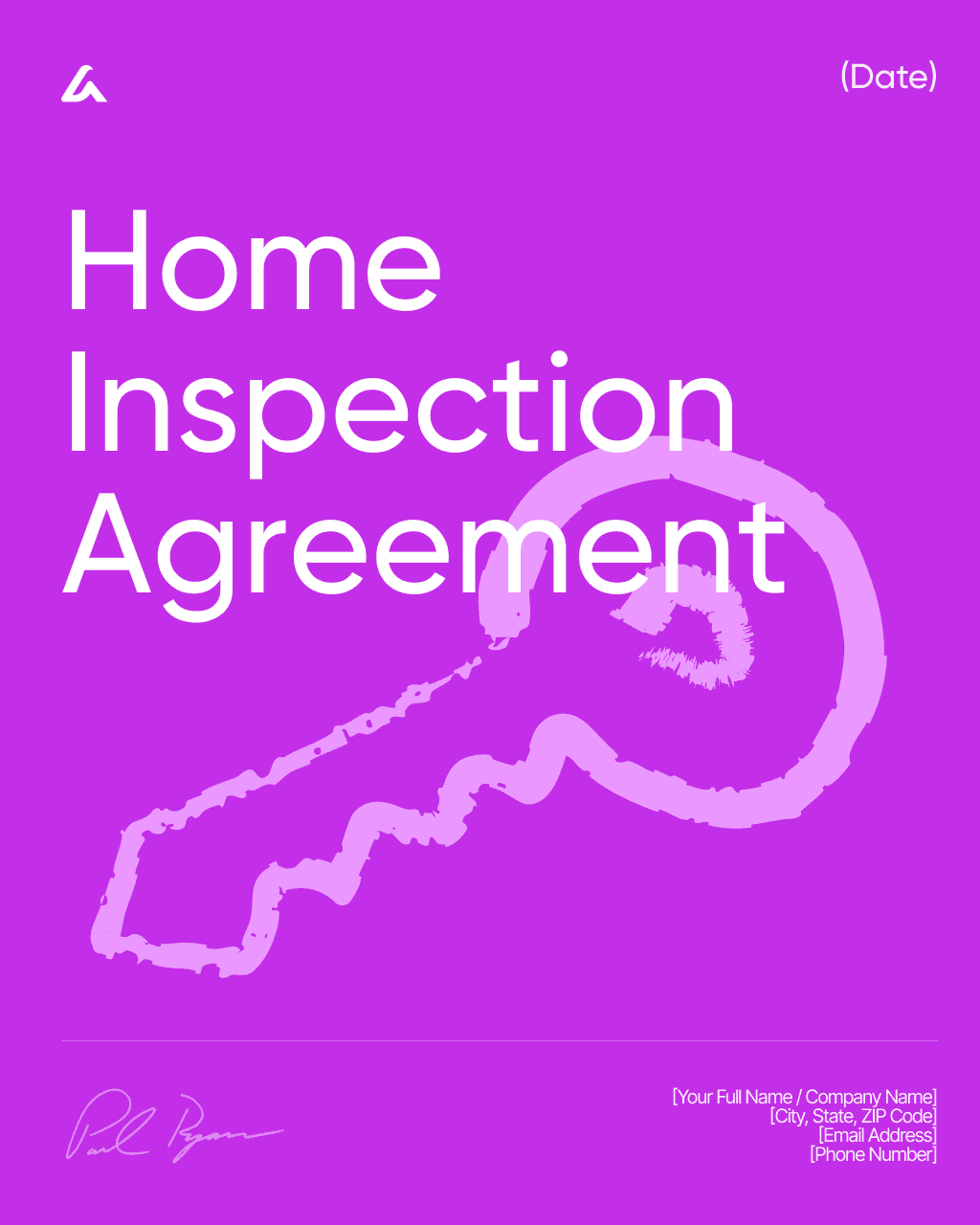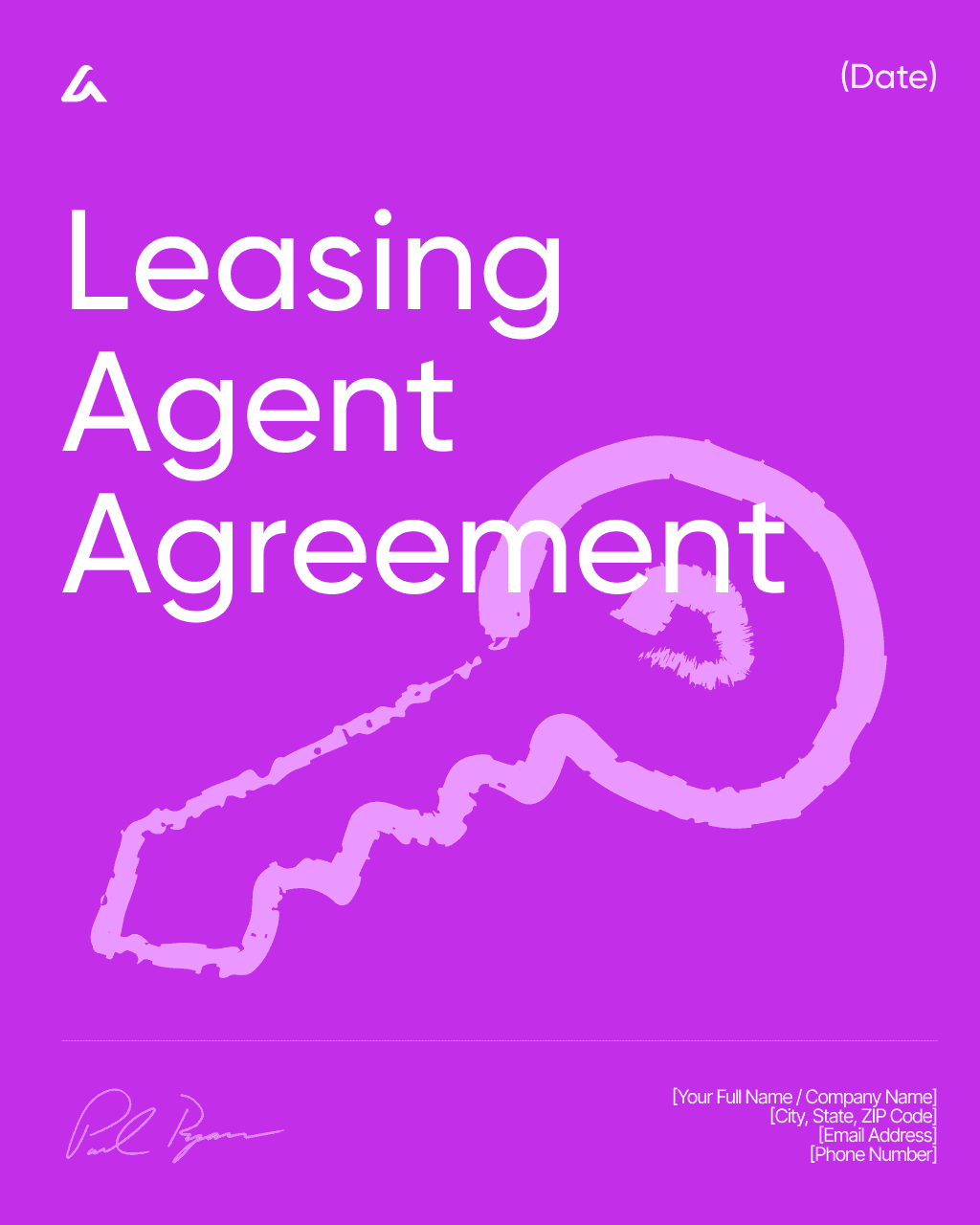Free template
Property Management Agreement Template: Duties, Fees & Terms Illinois
Draft your custom agreement in seconds with AI Lawyer
Download template
Property Management Agreement
This Property Management Agreement ("Agreement") is made and entered into on [Date], by and between:
Owner: [Property Owner’s Full Name / Company Name]
Address: [Owner’s Address]
and
Manager: [Property Manager’s Full Name / Company Name]
Address: [Manager’s Address]
Together referred to as the "Parties."
1. Property Description
Owner authorizes Manager to manage [Full Address], including improvements, grounds, and service areas (the “Property”).
2. Term
This Agreement is effective [Start Date] through [End Date] and renews month‑to‑month unless either Party gives [30] days’ notice. Renewal terms may be adjusted by mutual written consent.
3. Scope of Services
Manager will advertise, screen applicants, execute leases, collect rent, handle tenant communications, and enforce rules. Manager will coordinate repairs and procure bids for work exceeding $[Threshold]. Monthly reporting will include a rent roll, income/expense ledger, and open work‑order list.
4. Manager Compensation
Management fee: ☐ [X]% of collected rent ☐ Flat $[Amount]. Leasing fee: $[Leasing Fee]; renewal fee: $[Renewal Fee]. Project management for capital improvements above $[Capital Threshold] billed at [Y]% with Owner approval.
5. Owner Responsibilities
Owner funds an operating reserve of $[Reserve], maintains insurance, and remains responsible for taxes, mortgage, and capital expenditures. Owner provides prior records and vendor contacts, if any.
6. Financial Handling
Manager will use a separate operating account, pay authorized expenses, and remit net proceeds monthly. Records will be available for Owner review upon [X] business days’ notice.
7. Liability and Indemnification
Manager is not liable for tenant or vendor acts absent gross negligence or willful misconduct. Owner indemnifies Manager accordingly to the extent permitted by law.
8. Insurance
Owner must maintain property and liability insurance and list Manager as additional insured. Certificates of insurance shall be provided upon request.
9. Termination
Either Party may terminate with [30] days’ written notice or immediately upon breach. Upon termination, Manager will return funds, records, and keys within [X] business days.
10. Compliance and Notices
Parties will comply with housing, accessibility, and privacy laws. Notices via certified mail/courier to addresses above; email copies as courtesy.
11. Governing Law; Entire Agreement
Governed by [State/Country] law. Entire agreement; written amendments only; severability applies.
IN WITNESS WHEREOF, the Parties have executed this Property Management Agreement as of the date first written above.
Owner Signature
Name: __________________________
Date: __________________________
Manager Signature
Name: __________________________
Date: __________________________
No time to fill it up? Generate your custom agreement with AI Lawyer in seconds
Details
Learn more about
Property Management Agreement Template: Duties, Fees & Terms Illinois
Illinois Property Management Agreement FAQ
What is a Property Management Agreement?
A Property Management Agreement is a legally binding contract between a property owner and a property manager or management company that defines the scope of services, responsibilities, and authority of the manager. It sets the framework for how the property will be operated, maintained, and rented out on the owner’s behalf. The agreement typically details how rent will be collected, how tenants will be managed, and how maintenance and repairs will be handled. It also specifies the manager’s compensation, reporting duties, and the duration of the contract.
In short, a Property Management Agreement ensures that both the owner and the manager understand their roles and expectations, providing clear rules for day-to-day management and helping prevent misunderstandings or legal disputes.
When to use a Property Management Agreement?
A Property Management Agreement should be used whenever a property owner hires another person or company to manage their property on their behalf. This includes situations where the manager is responsible for collecting rent, handling maintenance, finding or screening tenants, or overseeing daily operations.
The agreement is especially important if the manager has access to the owner’s funds or authority to make decisions regarding repairs, leases, or evictions. Having a written contract helps define the scope of responsibilities, prevent misunderstandings, and protect both parties legally.
Even if you’re working with someone you trust, a Property Management Agreement ensures that every term — from fees to termination rights — is clearly documented and enforceable.
What should be included in a Property Management Agreement?
A well-drafted Property Management Agreement should clearly outline all essential terms to protect both the property owner (or association) and the management company. It should include the following key components:
Parties involved: Identify the property owner or association and the management company entering into the agreement.
Property description: Specify the exact property or properties covered by the agreement.
Scope of services: Detail the manager’s responsibilities, such as budgeting, financial reporting, maintenance oversight, staff supervision, regulatory compliance, and tenant or owner communication.
Fees and payment structure: Explain how management fees are calculated — whether as a flat rate, a percentage of rent or assessments, or separate charges for specific services.
Term of the agreement: Define the length of the contract, renewal terms, and any automatic extensions.
Termination provisions: Describe how either party can end the agreement, including notice periods and valid reasons for early termination.
Insurance and liability: Outline required insurance coverage and include indemnification clauses to protect both parties.
Dispute resolution: Specify how disputes will be handled — for example, through mediation, arbitration, or legal proceedings.
Reporting requirements: Set expectations for financial statements, maintenance reports, and other updates, including how often they must be provided.
Together, these elements ensure that the agreement is transparent, enforceable, and fair to both sides.
Can a Property Management Agreement be changed after signing?
Yes, a Property Management Agreement can be changed after signing, but only if both parties agree to the modifications. Any changes — such as adjustments to management fees, responsibilities, or contract duration — should be made in writing through an official amendment or addendum to the original agreement.
Both the property owner and the management company must sign and date the amendment for it to be legally valid. Verbal agreements or informal promises are not enforceable and can lead to disputes.
It’s also good practice to review the original contract before making changes, as many agreements include specific clauses outlining how modifications must be handled. Keeping all amendments properly documented ensures clarity and legal protection for both parties.
What happens if one party breaches the Property Management Agreement?
If one party breaches the Property Management Agreement, the non-breaching party may have several legal and contractual remedies depending on the terms of the agreement. A breach occurs when either the property manager or the owner fails to meet their contractual obligations — for example, the manager neglects maintenance duties or the owner fails to pay management fees.
Most agreements outline specific steps for handling a breach, such as providing written notice, allowing time to correct the issue (a “cure period”), or terminating the contract if the problem isn’t resolved. In serious cases, the non-breaching party may also pursue compensation for financial losses or other damages.
Keeping detailed records of all communications and actions related to the breach is essential, as this documentation can be critical if the dispute escalates to mediation, arbitration, or court.
Similar templates

























































